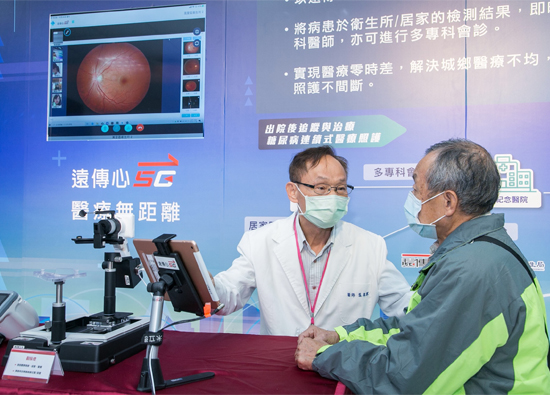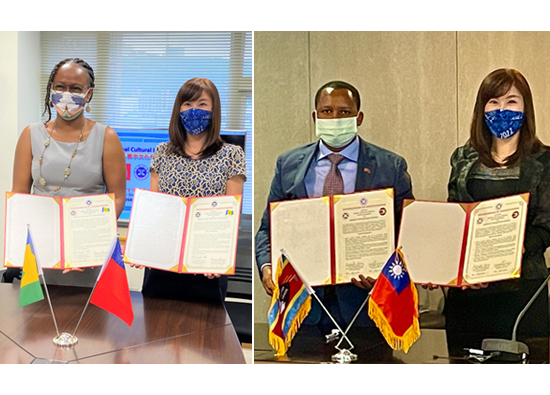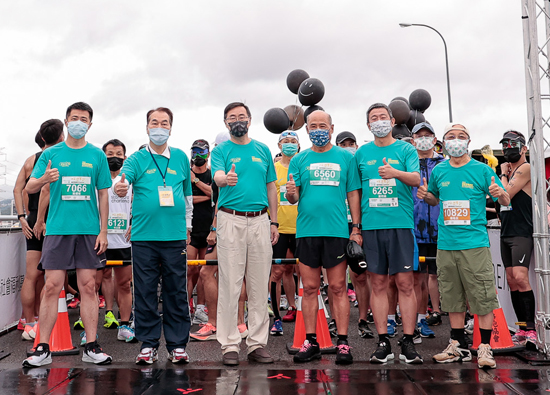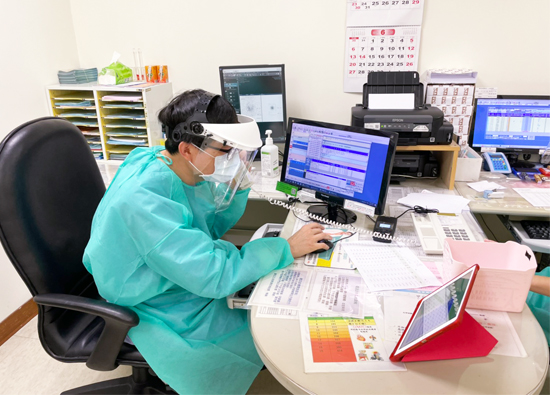07.2022 Group Briefing
U-Ming Marine 2022 Shareholders’ Meeting
U-Ming Marine / Zack Wang

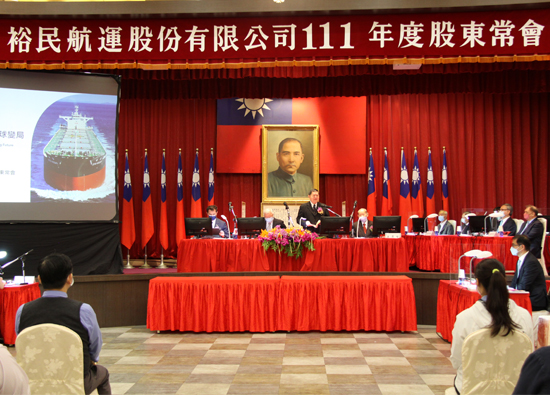
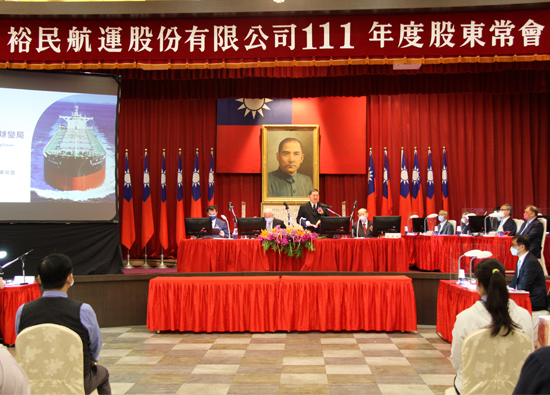 U-Ming Marine Transport Corporation has today declared a full year cash dividend of NT$3.00 per share on the back of its strong set of financial results for 2021.
U-Ming Marine Transport Corporation has today declared a full year cash dividend of NT$3.00 per share on the back of its strong set of financial results for 2021.
Speaking at the company’s 2022 Annual Shareholder’s Meeting (AGM) in Taipei today (June 8, 2022), U Ming Chairman Mr. Douglas Hsu said the dividend maintained the company’s record of high surplus payouts and high dividend yields.
In March of this year U Ming announced it had achieved an annual consolidated revenue of NT$14.012 billion with earnings after tax of NT$4.892 billion, and earnings per share (EPS) of NT$5.79 for 2021.
U-Ming continues to demonstrate its sound financial structure with a total of NT$12.155 billion and NT$14.38 per share in undistributed earnings and statutory reserves available for future distribution. U-Ming will continue its efforts to reward shareholders with a strong performance.
In his address to the meeting, Mr Hsu said the effectiveness of the anti-Covid19 measures in various countries resulted in a pent-up demand that favored the dry bulk shipping market.
This was coupled by respective government’s stimulus policies towards infrastructure expansion which resulted in the Baltic Dry Index (BDI) rising to an annual high of 5,650 points on October 7, 2021; hitting a 13-year high with an annual average of 2,943 points, a year-on-year increase of 176% over 2020.
During the first five months in 2022, many uncertain factors have affected the demand for the dry bulk shipping. In February, due to China’s Winter Olympics’ related policies, the steel mills in Tangshan region reduced their steel production and in turn iron ore imports.
In addition, the continuous heavy rain in Brazil affected its major iron ore mining production; resulting in an overall bearish market sentiment for the Cape-size sector in Q1 2022.
The outbreak of the Russian-Ukrainian war at the end of February has also seriously affected the export of major dry bulk cargoes like coal and grains in the Black Sea region. In April 2022, the International Monetary Fund (IMF) revised down its earlier January forecasted global economic growth rate (GDP) of 4.4% to a lower 3.6%.
Since March 2022, major cities in China have undergone lockdowns due to the impact of COVID; China's economy in the 1H 2022 is expected to be severely affected. However, we believe that once the pandemic is brought under control and the easing of COVID restrictions in China begins, which we have seen in Shanghai and Beijing in early June, the Chinese government is determined to activate its aggressive stimulus policy in 2H 2022 in order to achieve a GDP growth target of 5.5% set for 2022. We believe this should support steel demand raw material imports in the coming months.
The increase in demand for electricity in India due to high temperature has depleted the country’s coal inventory thus substantial imports were needed into the country. As a result, the Cape-Size freight market has benefitted and a substantial improvement was seen in Q2 2022; together with the ongoing strong market sentiment for the small and medium-sized bulk carriers.
As the Russia-Ukraine war continues, the industry is seeing a lengthening of ton miles on trade routes. We are seeing more volumes to longer distances, which helps push up freight rates. For the sake of food security, many countries are looking for alternate sources; which have resulted an increase in seaborne trade.
On the ship supply side, currently global shipyards capacity are full up to 2025 with large number of new building orders mainly for gas carriers and container ships.
The order for dry bulk carriers only accounts for 6.6% of the existing fleet - an historic low; hence the delivery of new dry bulk carriers in the next 2 to 3 years are expected to be minimal. Uncertainty relating to emissions regulations and technologies to decarbonize the industry will also continue to hinder ordering.
The ongoing high oil prices which prompted slow steaming and the continuous port congestion should continue to compound the reduced tonnage capacity situation. The Energy Efficiency Existing Ship Index (EEXI) and the Carbon Intensity Indicator (CII) regulations shall take effect in January 2023; resulting those ships that do not meet the emission standards will have to carry out Engine Power Limitation (EPL) or forced into slow steaming. This will further accelerate the decommissioning of older ships which is good for the overall market fundamentals.
Mr Hsu said U Ming is optimistic that the overall dry bulk freight market should stay healthy for the rest of the year.
U-Ming has continued with its fleet renewal program at the timely manner. At the end of 2020, before the rebounding of the dry bulk market and the surge in new building prices, U-Ming had foreseen that the demand for dry bulk transportation would continue to grow and compounded by the limited future supply growth of dry bulk vessels. Hence the Company had seized the opportunity then to order 12 new energy-saving and environmental-friendly bulk carriers and 1 cement carrier - incurred a total capital expenditure of USD 650 million but with at least 20% total savings achieved as compared to the current market price.
These new ships are expected to be delivered progressively before 2024 which will boost U-Ming’s financial performance and propel the Company into further success to meet the ever-changing global economic market conditions.
U-Ming is the first and only shipping company in Taiwan that builds LNG dual-fuel bulk carriers; and one of the pioneers in the global LNG bulk carrier fleet. The Company has set a target of 30% carbon dioxide emission reduction in 2025 (based on 2013 reference) and is determined to provide sustainable low-carbon green transportation services to its customers in the future.
To stand out from the competition, U-Ming is determined to constantly undergo transformation and upgrading in order to respond swiftly to market changes and challenges; supported by prudent management’s clear strategic growth direction. The Company will continue to collaborate with its major customers to expand its low-carbon energy fleet such as LNG/Ammonia/Methanol which is in line with Taiwan's energy transition and security policies; including the formation of a national LNG-powered fleet, one of U-Ming’s main goal in its ongoing sustainable initiatives.
In December 2021, U-Ming's proprietary "Fleet Safety Management System" (FSM) was verified by ClassNK, a Japanese Classification Society, and attained the Certificate of Innovation Endorsement. The FSM system collects near real-time ship information in order to centrally capture the navigation information, safety status of major equipment and engine performance data of each ship in the Company’s Operation Center (OP Center). FSM is also utilized to ensure that each ship adopts the best route planning, reduces impact of fuel consumption and severe weather; which helps to improve the overall operational performance.
In addition, U-Ming is the first Taiwanese company (excluding banks) to join the Society for Worldwide Interbank Financial Telecommunication (SWIFT) in early 2022. Through the SWIFT financial platform, it integrates and transmits remittance information to banks around the world to achieve efficient remittance and automation targets.
U-Ming’s long-standing commitment to sustainable management has won recognitions both domestically and internationally. In 2021, U-Ming was awarded the Gold Award in the Taiwan Corporate Sustainability Awards for the transportation industry by the Taiwan Sustainable Energy Research Foundation. It is also a constituent stock of the FTSE4Good Emerging Index and the Taiwan Sustainability Index FTSE4Good TIP Taiwan ESG Index. U-Ming has created a friendly workplace environment, attained the Badge of Accredited Healthy Workplace by the Health Promotion Administration and won HR “Asia Best Companies to Work for in Asia 2021”. and "We Care Best Employee Care Award". In March 2021, U-Ming had signed a 'Sustainability Index-Linked Loan Facility with E.Sun Bank, and subsequently with Overseas-Chinese Banking Corporation, ANZ Bank and Mizuho Bank respectively to expand the Company's green energy fleet. U-Ming's ongoing sustainable initiatives have also attracted external attention; the Company was recently invited to participate in an exclusive interview with the Discovery Channel's program named "Looking at the Future from Taiwan: ESG Sustainable Development".
U-Ming currently owns and operates a fleet of Capesize, Panamax, Post Panamax, Supramax and Ultramax bulk carriers; Cement Carriers; Very Large Crude Carriers (VLCC); Very Large Ore Carriers (VLOC) and Crew Transfer Vessels (CTV); amounting to a total of 71 vessels including vessels that are in operation, under construction, joint ventures and ship management services; with a total deadweight of 8.7 million tons. The average age of the owned bulk carrier fleet is about 6.5 years. U-Ming has overseas subsidiaries in Singapore, Hong Kong and China Xiamen.
#


